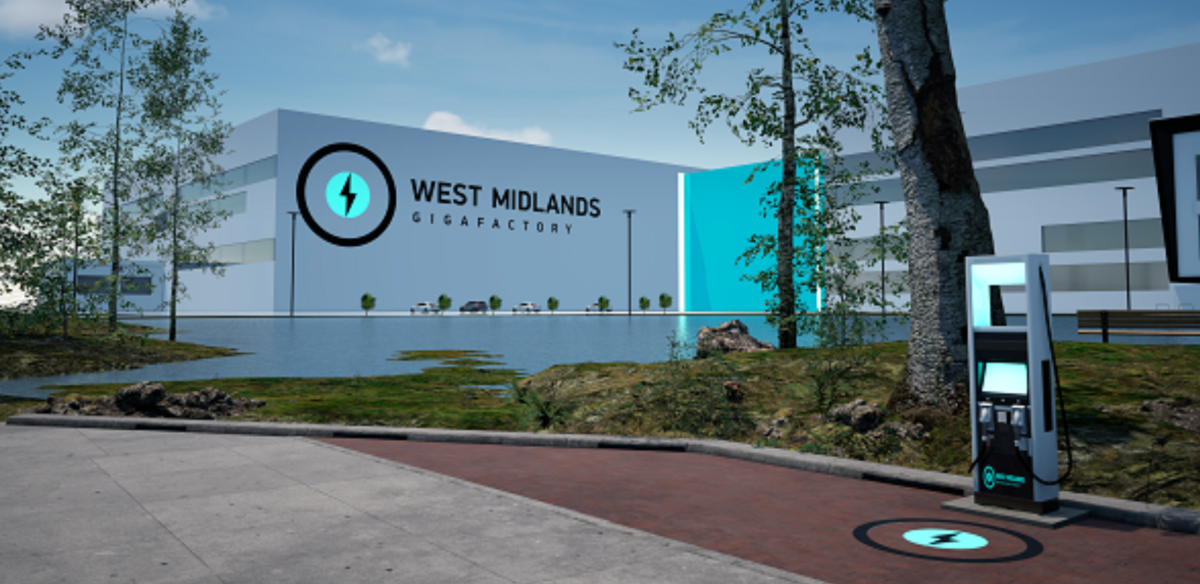Warwick District Council and Coventry City Council have given the green light to outline plans for a gigafactory in the English West Midlands, which is looking to attract £2.5 billion ($3.4 billion) in investment. The 530,000 square meter facility will manufacture high-tech lithium-ion batteries for the global automotive and energy storage industries.
According to project proponents, the gigafactory will have capacity to deliver up to 60 GWh of batteries by the end of the decade. As outlined in the project plans, first revealed last year, the facility will be built on a small local airport in Coventry and be production ready by 2025.
The West Midlands Gigafactory, a public-private joint venture between Coventry City Council and Coventry Airport Ltd, will create up to 6,000 new highly skilled jobs directly alongside thousands more in the wider supply chain in Coventry, Warwickshire, and the surrounding region.
Coventry Airport was the obvious location for the gigafactory given its proximity to a mature automotive supply chain and skills ecosystem. The region, also described as the UK’s automotive heartland, already hosts automotive manufacturers, including Tata-owned Jaguar Land Rover and Aston Martin Lagonda, as well as taxi maker London EV Company, which is owned by China's Geely.
“We have the location, people and supply chain expertise developed in the automotive and battery sectors over many years to make us the perfect location for a gigafactory,” said Cllr. Jim O’Boyle, cabinet member for jobs, regeneration and climate change at Coventry City Council. “The next step is to secure an investor to ensure that the wider automotive and battery ecosystem in Coventry and the West Midlands continues to contribute towards increased economic growth, job creation and skills development.”
Popular content
The site will be 100% powered by renewable energy. According to project proponents, the West Midlands Gigafactory will feature one of the UK’s largest rooftop PV arrays to operate the factory paired with on-site battery storage facilities. No further details on these systems have been specified.
Further boosting its green credentials, the gigafactory will adopt a net zero transport and logistics strategy. Thanks to excellent access to the UK’s motorway network as well as electrified road and rail options, the facility plans to save 7 million miles of heavy goods vehicle (HGV) traffic on roads annually.
On top of that, the West Midlands Gigafactory says it will pursue “industry leading ‘cradle-to-cradle’ approach”, which will allow the plant to both manufacture new batteries and recycle used ones.
This content is protected by copyright and may not be reused. If you want to cooperate with us and would like to reuse some of our content, please contact: editors@pv-magazine.com.



1 comment
By submitting this form you agree to pv magazine using your data for the purposes of publishing your comment.
Your personal data will only be disclosed or otherwise transmitted to third parties for the purposes of spam filtering or if this is necessary for technical maintenance of the website. Any other transfer to third parties will not take place unless this is justified on the basis of applicable data protection regulations or if pv magazine is legally obliged to do so.
You may revoke this consent at any time with effect for the future, in which case your personal data will be deleted immediately. Otherwise, your data will be deleted if pv magazine has processed your request or the purpose of data storage is fulfilled.
Further information on data privacy can be found in our Data Protection Policy.